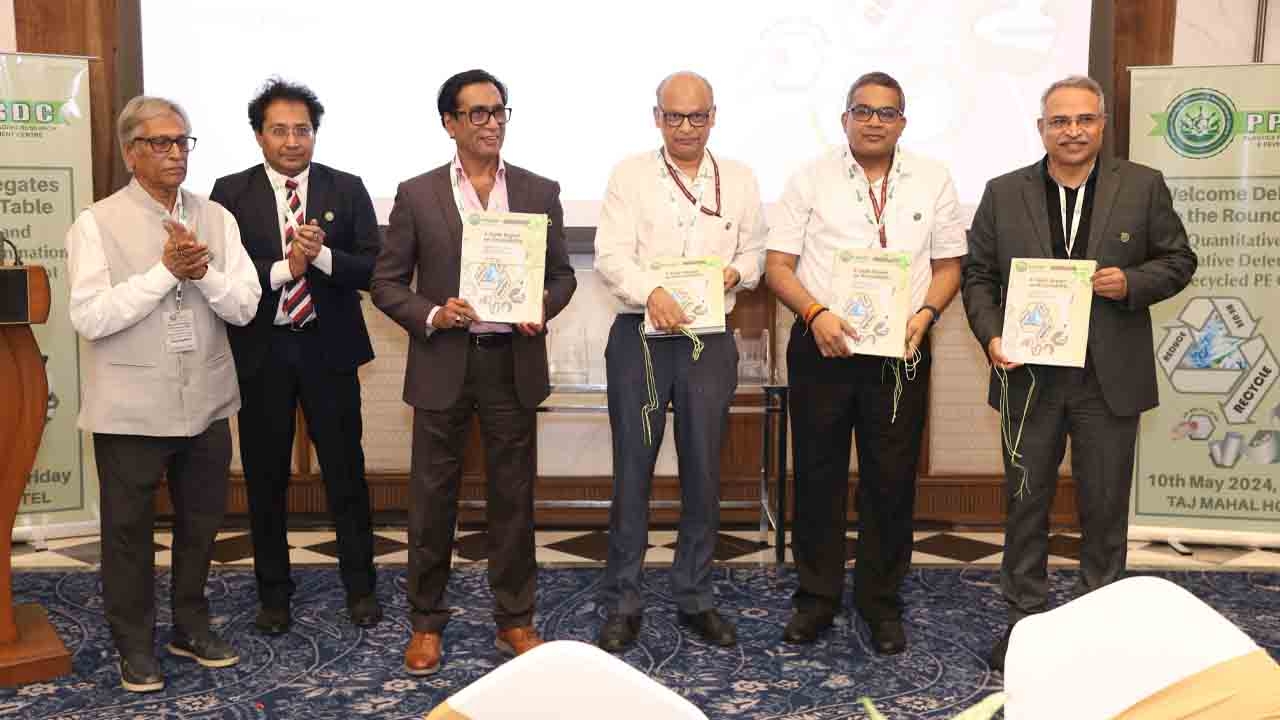UFlex releases report on proposed national standard for recycled content estimation
The report proposes a standardized measurement of recycled PE content in packaging by producers, importers, and brand owners to meet EPR objectives.

UFlex’s chairman and managing director Ashok Chaturvedi has released a report on ‘Proposed National Standard for Scientific Estimation of Recycled Content’ for EPR reporting at an event organized and hosted by Plastic Packaging Research and Development Centre (PPRDC).
Chaturvedi said: ‘At UFlex, sustainability is the cornerstone of our corporate strategy and as a global leader in packaging, we have made significant investments in recycling technologies to keep plastic in the economy and out of the environment. Currently, we recycle close to 30,000 MT of multi-layer plastic (MLP) waste annually across India, Poland, and Mexico, and the goal is to reach 100,000 MT of recycling annually by building additional global recycling facilities globally. We laud the Indian government’s plastic waste management (PWM) and extended producer responsibility (EPR) regulations that will transform the waste management ecosystem in India and accelerate the pivot to sustainable development and circular economy. However, there is a need to measure recycled content in packaging accurately and avoid inconsistencies in EPR reporting. The study report by PPRDC, supported by CIPET and BIS, is a step in the right direction that proposes the development of a standardized measurement of recycled PE content in packaging by producers, importers, and brand owners to deliver on their individual and industry EPR objectives.’
The School for Advanced Research in Petrochemicals (SARP) – Laboratory for Advanced Research in Polymeric Materials (LARPM) at the Central Institute of Petrochemicals Engineering & Technology (CIPET) in Bhubaneswar, conducted a study recently which explains a method of determining rPE content in packaging materials. The study recommends FTIR spectroscopy and DSC-based thermo-analytical techniques to develop a National Standard or operating/audit process to assess and regulate the recycled content of PCR plastic packaging. This helps discourage practices like green-washing and waste fraud that diminish circularity and erode public trust in plastic recycling.
This study report builds on previous findings of SARP-LARPM, CIPET, in collaboration with the Foundation for Innovation & Technology Transfer, IIT-Delhi, for the method of determination and estimation of mechanically recycled PET content in packaging materials. Earlier, these institutes recommended using a UV-Vis Spectrophotometer to accurately predict the recycled content in v- PET/rPET composites.
In addition to the launch of the study report, government and industry representatives discussed a wide range of topics including the scope and status of EPR implementation in India and the challenges faced by producers, brand owners, and importers in complying with EPR guidelines, amongst others.
Notable industry speakers included Deepak Mishra, joint secretary, department of chemicals and petrochemicals (PC), Government of India, Meenal Passi, head - petroleum, coal and related products department (PCD), Bureau of Indian Standards (BIS), Prof. (Dr.) Shishir Sinha, director general, Central Institute of Petrochemicals Engineering and Technology (CIPET), Dr. Smita Mohanty, principal director , Central Institute of Petrochemicals Engineering and Technology (CIPET): School for Advanced Research in Petrochemicals (SARP) - Laboratory for Advanced Research in Polymeric Materials (LARPM), and others.
PPRDC is a non-profit research and development center established by the Multilayer Plastics Films Sanitation Trust. The event agenda included a briefing by representatives from key industry bodies and PPRDC executives on the proposal for the adoption of a national standard for regulating PCR in packaging and best practices for building a circular economy.
Stay up to date
Subscribe to the free Label News newsletter and receive the latest content every week. We'll never share your email address.

